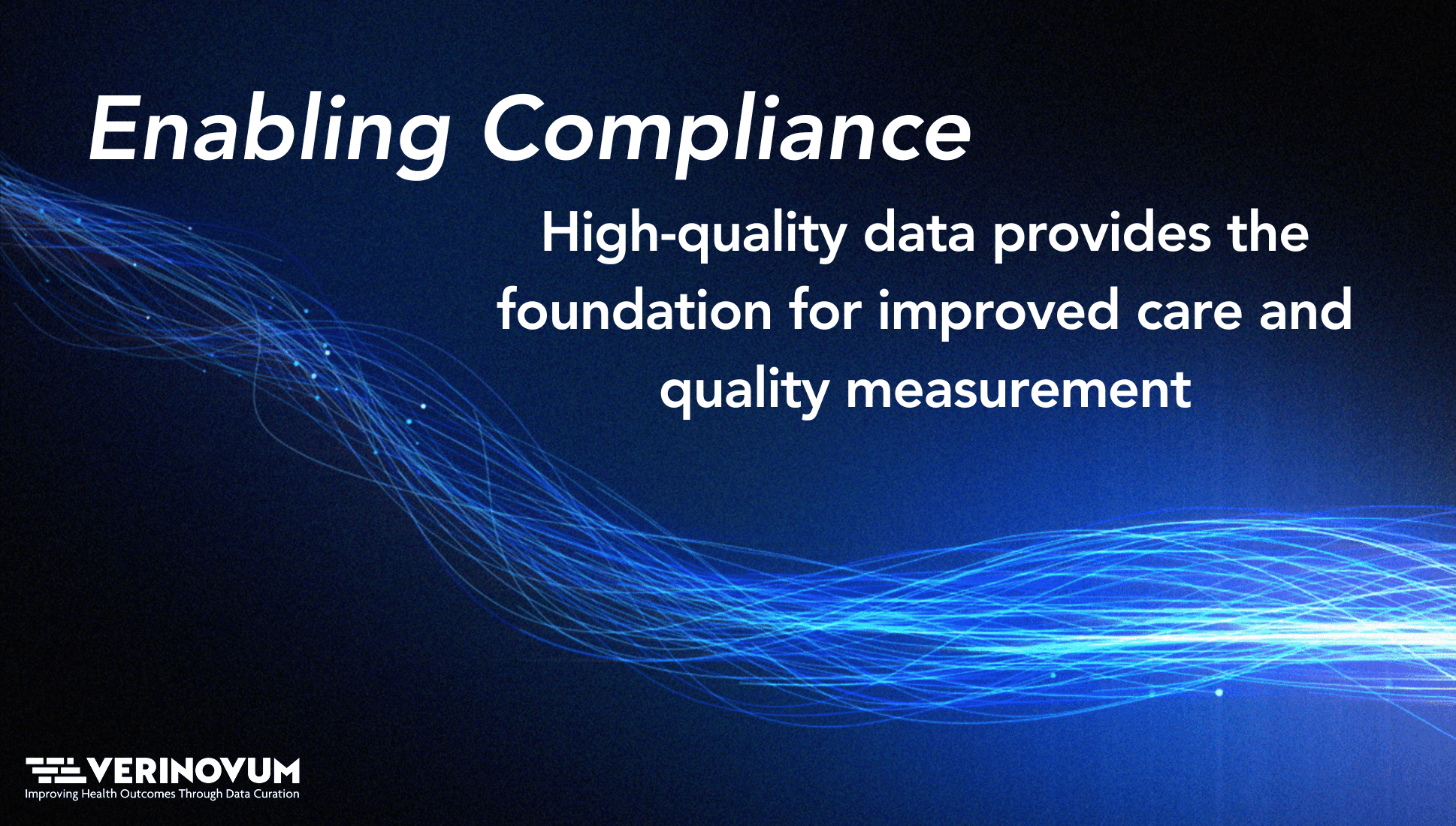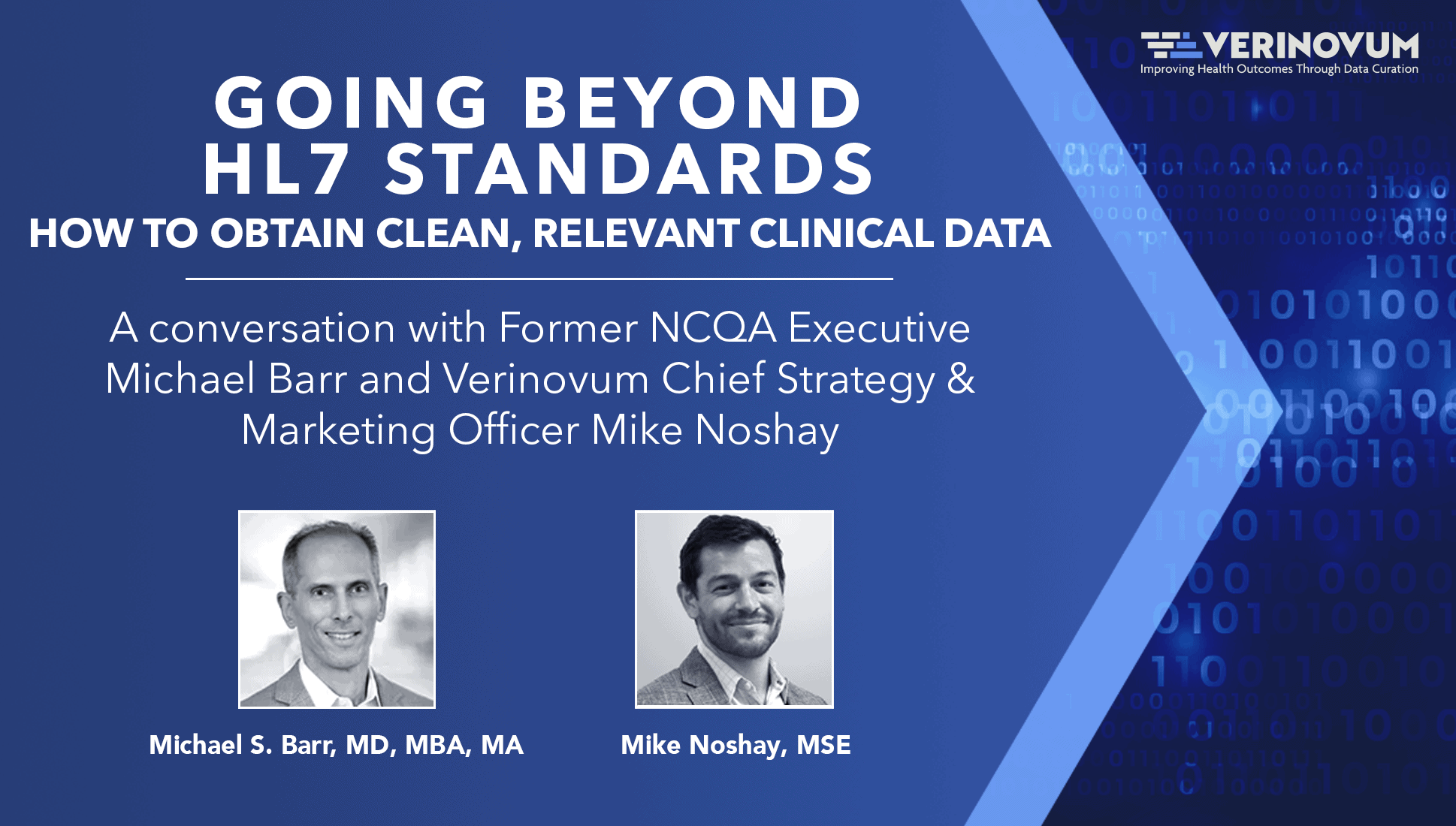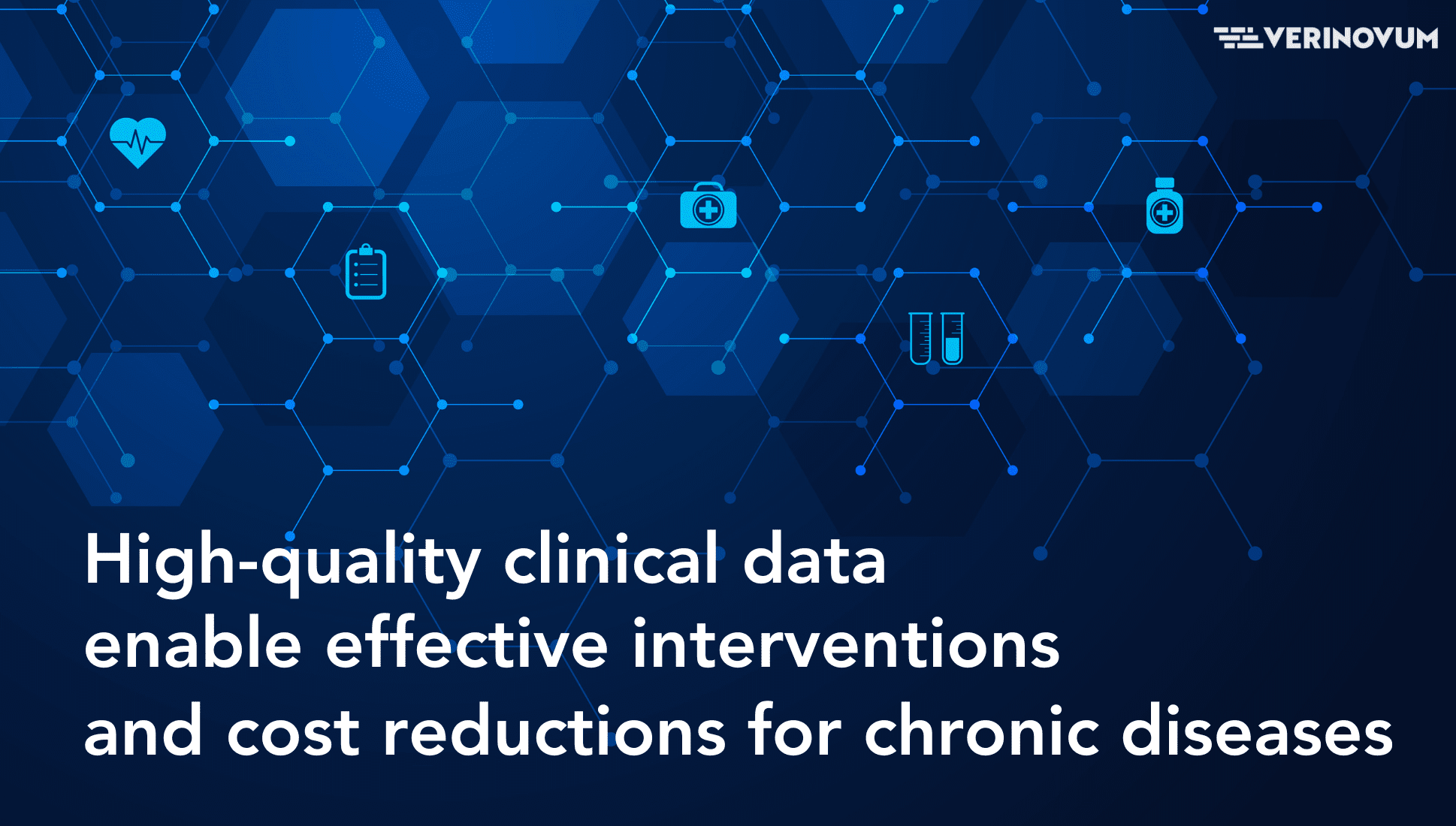The Verinovum Blog
Healthcare Data Insights
By Type
By Topic
By Date Published
Enabling Compliance: High-quality data provides the foundation for improved care and quality measurement
In this whitepaper, we look at the value of clinical data curation and enrichment in terms of ensuring compliance with regulatory and certification requirements, negotiating value-based care contracts, and supporting healthcare’s new Quadruple Aim.
Filling in the Gaps of EHR Data with Michael Barr
Watch former NCQA executive vice president Michael Barr discuss the challenges of obtaining quality data and how to fill the EHR data gaps.
NCQA Data Tips and Tricks: Q&A with Rick Moore
In this Q&A interview, Verinovum’s Chief Strategy and Marketing Officer, Mike Noshay, sat down with former NCQA Chief Information Officer Rick Moore to discuss current challenges around collecting healthcare data and how payers can unlock the right data at the right time to improve performance measures.
High-quality clinical data enable effective interventions and cost reductions for chronic diseases
Payers typically have no shortage of clinical data at their disposal, with information from health screenings, health assessments, electronic health records (EHRs), clinician notes, test results, and more. But the quality of the data is suspect. In our experience, only about 40% of the clinical data our clients receive from providers or health information exchanges are usable, without need for curation and enrichment. The remaining 60% are inaccurate, incomplete, duplicative, or unstandardized. It requires various levels of curation and enrichment to make data standardized, accurate, and complete.
On-Demand Webinar: Moving Beyond “One Size Fits All” Care
In this 45-minute webinar, Verinovum’s Chief Medical Information Officer Mureen Allen, MD, MS, MA, FACP and Envision Health’s Senior Science Writer Jill Pritts discuss the data curation strategies that can be applied to your organization’s quality-of-care equation and enable you to be compliant and achieve your Quadruple Aim goals.
Enabling Early Intervention for Prostate Cancer in Black Men
Black men face many risk factors for being diagnosed with prostate cancer, including a lack of access to healthcare, racial bias that can cause black men not to seek treatment, socioeconomic status, and delayed care. Yet if prostate cancer is detected at the early stages of development, the survival rate is 99%.4 The study's conclusion is that PSA screenings are not only more effective than scientists thought for the general population but benefit black men more than other races. Due to prostate cancer's prevalence in black men, they should be screened earlier and more frequently to monitor and mitigate their risk.
The HIT infrastructure we need to ensure the healthcare system we deserve
As the nation emerges from the COVID-19 pandemic, now is the time to reflect on and address the deficiencies in our healthcare system. In particular, the pandemic revealed stark truths about our healthcare information technology (HIT) systems with respect to racial and ethnic health inequities and our inability to collect and share patient data electronically between providers, payers, public health organizations, and other stakeholders.
By simplifying risk management, clean data saves money and improves care quality
As healthcare transforms, payers will increasingly incentivize providers to share health records for quality data reporting and to collect clinical data to improve population health, care management, and risk adjustment.
How more complete, accurate clinical data can improve benefit design
As of 2019, employer-sponsored health plans covered nearly 155 million Americans. No matter how costs trend for employers in the future, it’s clear that providing the right benefits for employees will only become more challenging. As benefit design for enrollment planning is finalized, these statistics point to a critical need for payers to ensure that self-and fully-insured employers have accurate healthcare analytics derived from highest-quality healthcare data.








